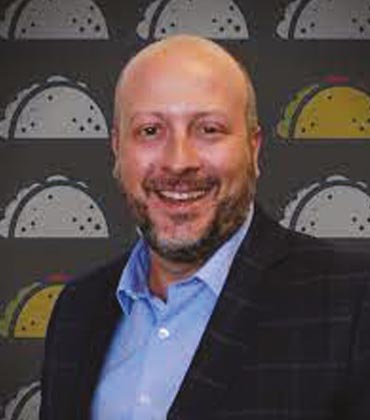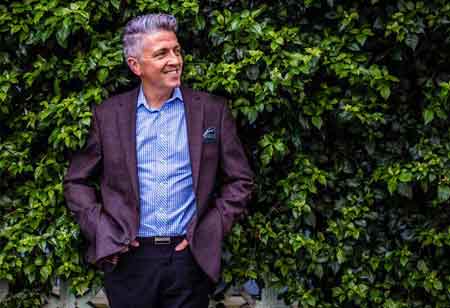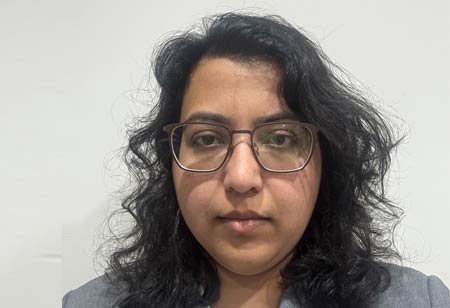THANK YOU FOR SUBSCRIBING
By Steve Smyth, Director of Restaurant Technology, Taco John’s International
Embracing the New Normal Both on the Inside and Outside
By Ted Beyer, Senior Quality Assurance Manager at Sun-Maid Growers
Changes Needed in Foreign Supplier Verification Programs
By Eric Dulin, Global Director Of Procurement, Yum Digital And Technology, Author Of Win-Win- Win, A Collaborative Approach To Procurement In The Era Of Digital Metamorphosis
Win-Win-Win, The Importance of Collaborative Procurement...
By Brian Holbrook, Director, Indirect Procurement, Kerry [LON: KYGA]
Trends in the Procurement Space

Nurturing Tomorrow's Food Through Sustainable Leadership
Christina OKeefe, Regional Head of Sustainability- North America, Kerry

 Christina OKeefe, Regional Head of Sustainability- North America, Kerry
Christina OKeefe, Regional Head of Sustainability- North America, KerryWith a foundation in agricultural engineering from the University of Nebraska–Lincoln and an MBA from the University of Nebraska at Omaha, Christina O’Keefe has cultivated a deep passion for the intersection of food systems, environmental stewardship, and operational excellence. Beginning her career in manufacturing roles within the food and beverage industry, she gained invaluable insight into product creation and its environmental impact. Since joining Kerry in 2011, Christina has held diverse roles spanning health, safety, environmental assurance, and sustainability. Her leadership focuses on advancing Kerry’s global mission to provide sustainable nutrition solutions to over two billion people by 2030—delivering better food for both people and the planet.
Overcoming Challenges in Driving Sustainability Across Supply Chain
Driving sustainability across a global supply chain as complex and diverse as Kerry’s is both a challenge and an opportunity. One of the most persistent hurdles we face is balancing sustainability goals with cost and performance expectations—not just internally, but across our supplier network. Our ingredients come from all over the world, and aligning sustainability standards across different geographies, regulatory environments, and maturity levels requires deep collaboration and flexibility.
To support this, we are continually improving our digital tools and data infrastructure that enhance traceability and transparency. These tools allow us to track environmental impacts across sourcing, logistics, and packaging, and to share actionable insights with both our teams and our customers. They’re also critical for meeting emerging regulatory requirements and consumer expectations around carbon footprint and responsible sourcing.
However, the biggest hurdle we’ve encountered is employee education and engagement. Sustainability is a shared responsibility, and influencing behavior across a global workforce requires more than just policies—it takes storytelling, training, and consistent reinforcement. We’ve focused on embedding sustainability into our culture by integrating it into onboarding, leadership development, and performance metrics. By making sustainability part of how we work—not just what we do—we’re building a more resilient and responsible supply chain.
“Sustainability isn’t a destination—it’s a journey of continuous improvement, and we’re proud to be leading that journey with purpose and partnership”
Ultimately, overcoming these challenges has made us stronger and more resilient. Sustainability isn’t a destination—it’s a journey of continuous improvement, and we’re proud to be leading that journey with purpose and partnership.
Tracking Progress and Preparing for Regulatory Changes
We track a range of KPIs aligned with our global sustainability pillars: People, Society and Planet. These include:
• People impact: Number of people reach by Sustainable Nutrition Solutions
•Social impact: Employee and community engagement metrics
• Carbon footprint: Scope 1, 2, and 3 emissions, aligned with Science-based Targets with a goal of net-zero by 2050.
• Water stewardship: Water usage intensity and water risk assessments at priority sites.
• Responsible Sourcing: Ensuring key commodities are deforestation free, ethical supply chains and incorporating regenerative practices and
• Waste and circularity: Percentage of waste diverted from landfill and packaging recyclability.
To ensure continuous improvement, we embed these KPIs into business unit scorecards, conduct quarterly reviews, and link performance to executive incentives.
We also use Product Carbon Footprints (CarbonGuide) and our NutriGuide to influence product innovation and customer collaboration. Data and accountability are critical—we publish annual sustainability reports and use third-party verification to validate our progress.
Upcoming regulations and shifting consumer expectations in North America are significantly shaping Kerry’s sustainability roadmap. From a regulatory standpoint, we’re closely monitoring the FDA’s updated definition of “healthy,” which tightens nutritional criteria for on-pack labeling. This aligns with consumer demand for clean labels and functional nutrition.
At Kerry, we’re supporting our customers through reformulation technologies that maintain taste and extend shelf life while meeting these new standards. Extended Producer Responsibility (EPR) laws are also gaining momentum, requiring companies to take greater accountability for packaging waste. We’re proactively redesigning packaging for recyclability, sourcing sustainable materials, and enhancing our data systems to meet reporting requirements.
These efforts not only ensure compliance but also support our customers’ goals in sustainability. Carbon disclosure, particularly around Scope 3 emissions, is another critical area. With anticipated SEC regulations, we’re expanding our carbon footprinting capabilities and leveraging this data to guide sustainable sourcing and product innovation. Reformulation plays a central role here—helping reduce environmental impact while improving nutritional profiles and optimizing taste.
These evolving regulations and consumer expectations offer a powerful opportunity to lead with science-driven solutions that create value throughout the food system. At Kerry, we’re committed to being a trusted partner in this transition—helping our customers navigate complexity while advancing sustainable innovation that benefits people, the planet, and business performance. To stay ahead, we’re investing in advanced digital tools and actively collaborating with industry groups to anticipate and adapt to regulatory shifts. Our innovation teams are focused on turning these challenges into opportunities—enhancing taste, reformulating with cleaner ingredients, optimizing nutritional profiles, and driving cost efficiencies.
Start by understanding the full value chain—from farm to fork—and identify where your organization can make the greatest impact. Sustainability isn’t a side project; it must be integrated into core business strategy. Build cross-functional alliances because you’ll need support from R&D, operations, procurement, and marketing to drive change.
Also, don’t let perfection be the enemy of progress. Start with what you can measure and improve and build from there. Don’t underestimate the power of data and storytelling. Quantify your impact but also communicate it in a way that resonates with stakeholders. And finally, stay curious— sustainability is a fast-evolving field, and continuous learning is key.
Sustainability is not just about compliance or risk mitigation—it’s a growth strategy. One area I’m particularly excited about is the intersection of nutrition and sustainability. This dual focus is where I believe the future of food lies. At Kerry, we believe that by delivering sustainable nutrition, we can create long-term value for our customers, communities, and the planet. It’s a journey, and we’re proud to be leading the way.
Read Also




![Brian Holbrook, Director, Indirect Procurement, Kerry [LON: KYGA] Trends in the Procurement Space](https://www.fbtechreviewapac.com/newstransfer/upload/370x420_ioF8.jpg)









